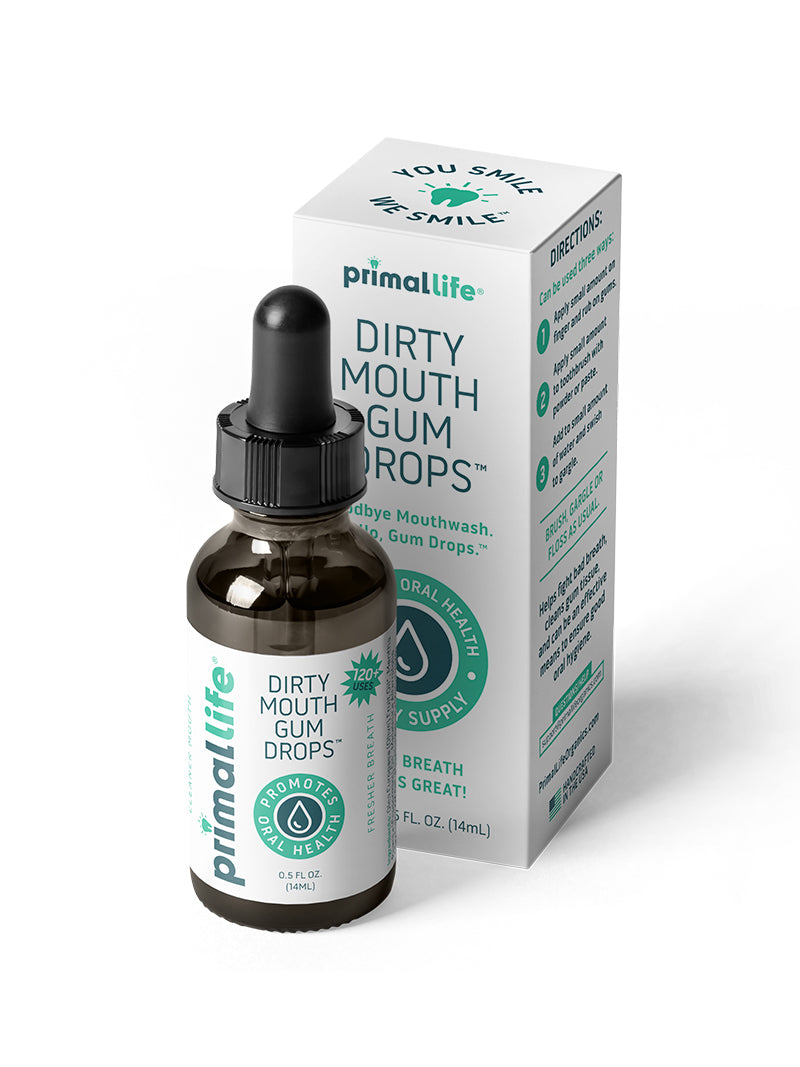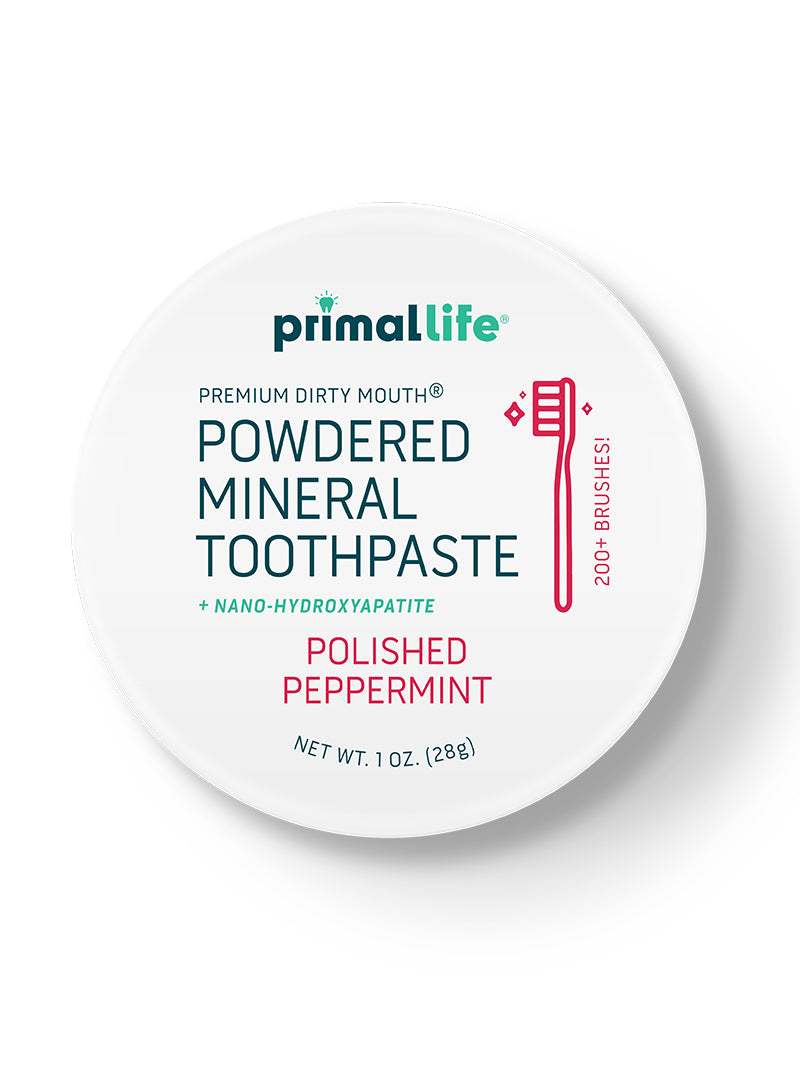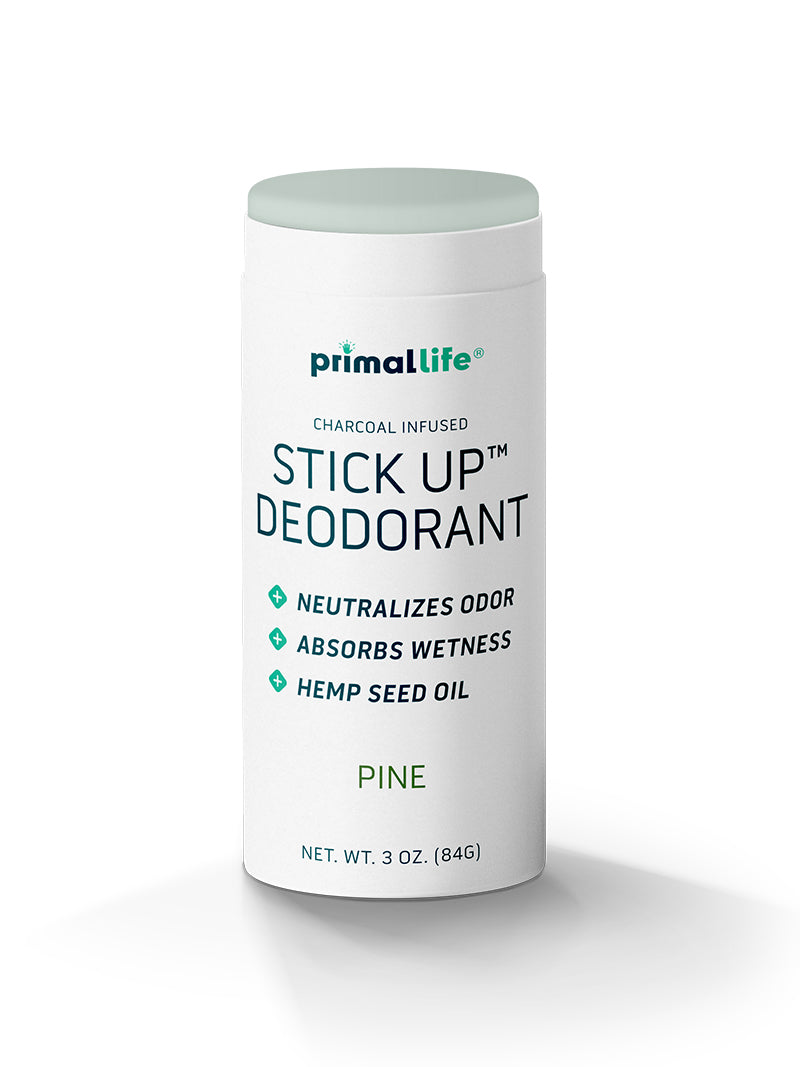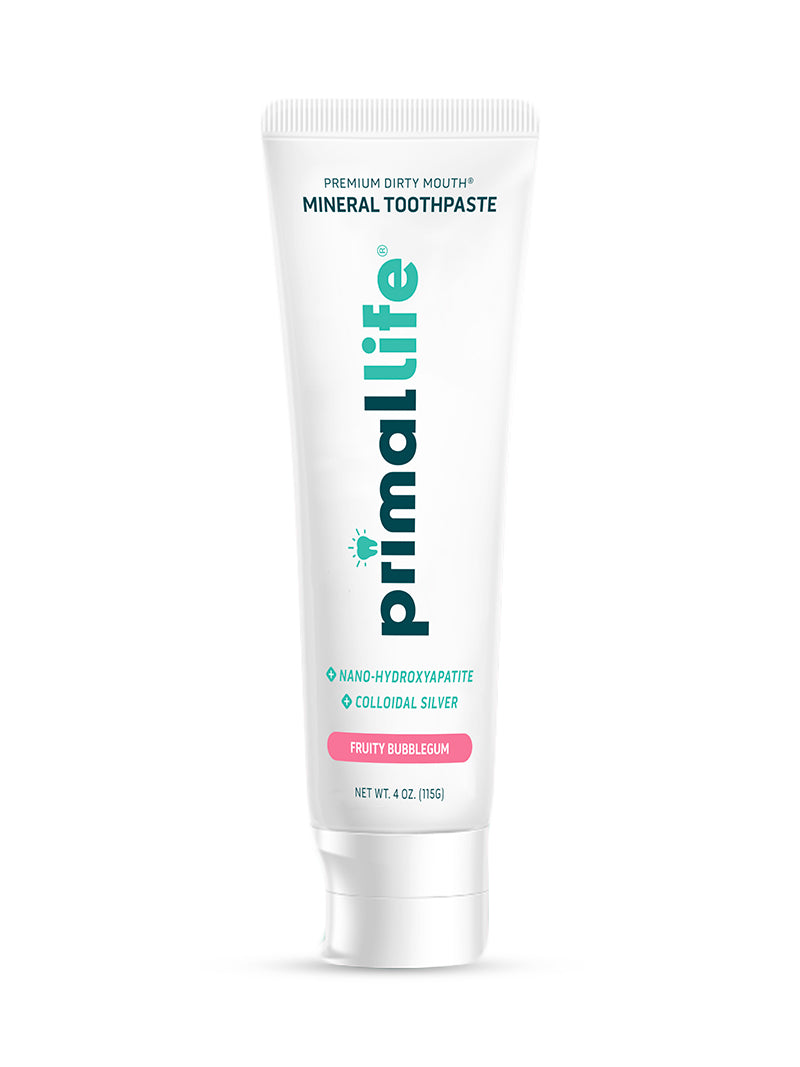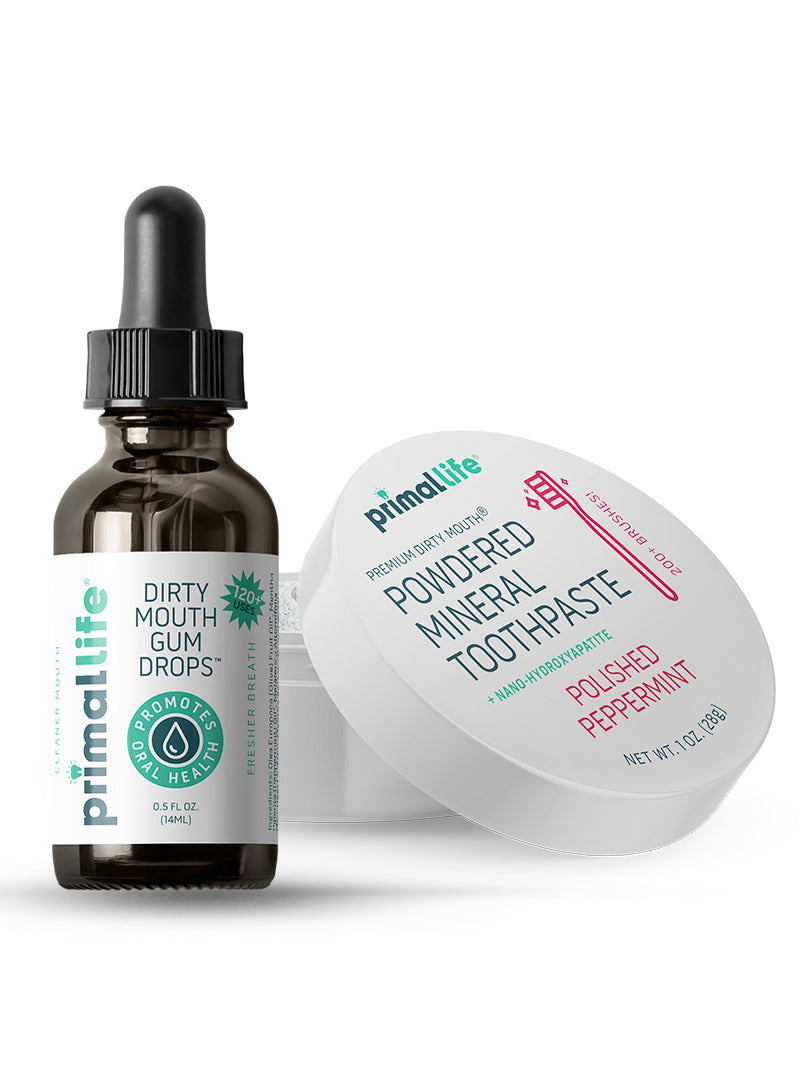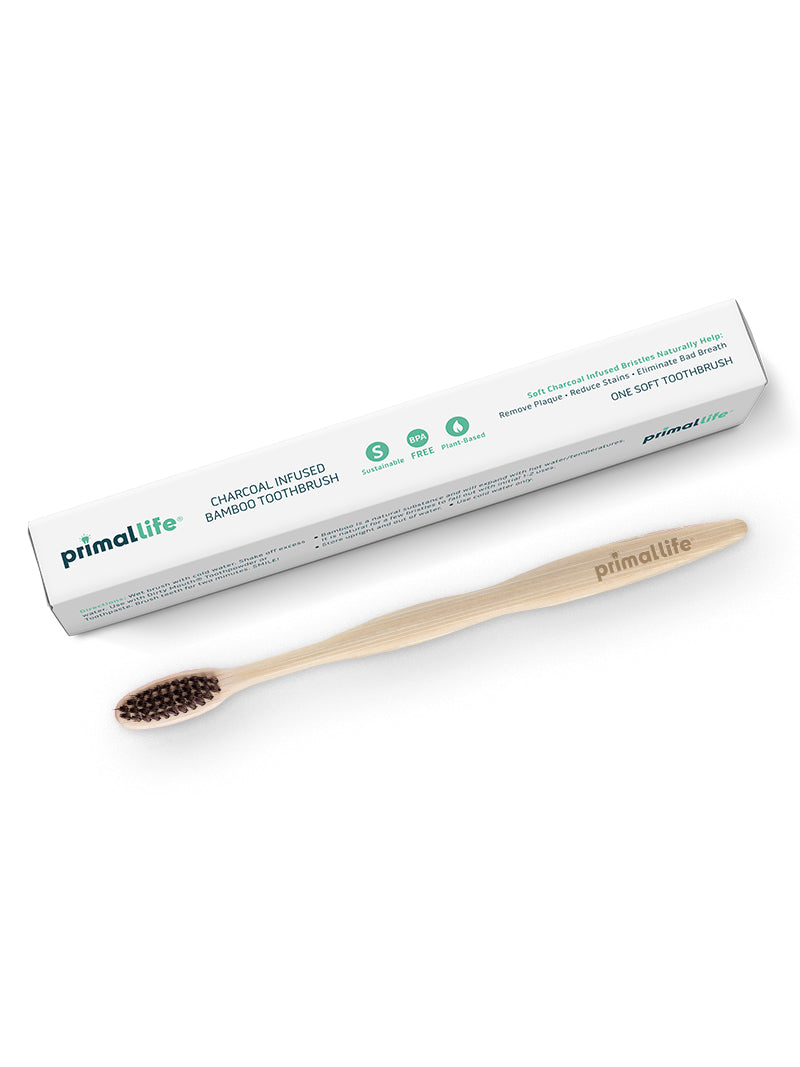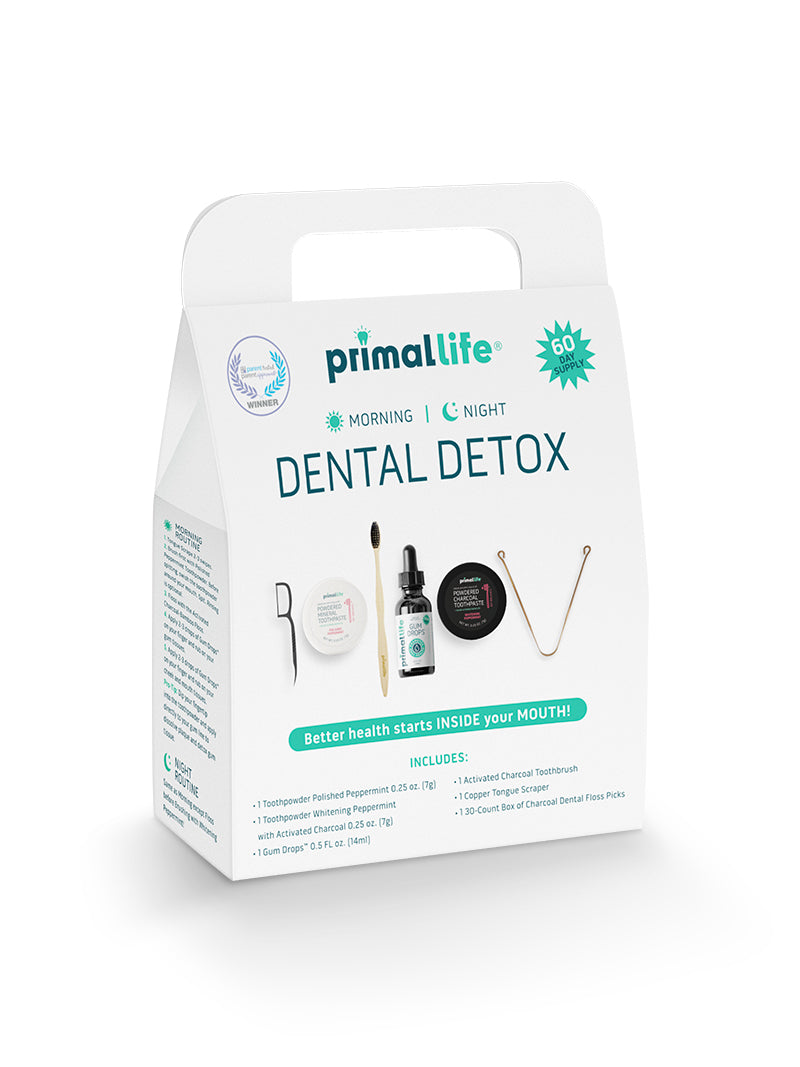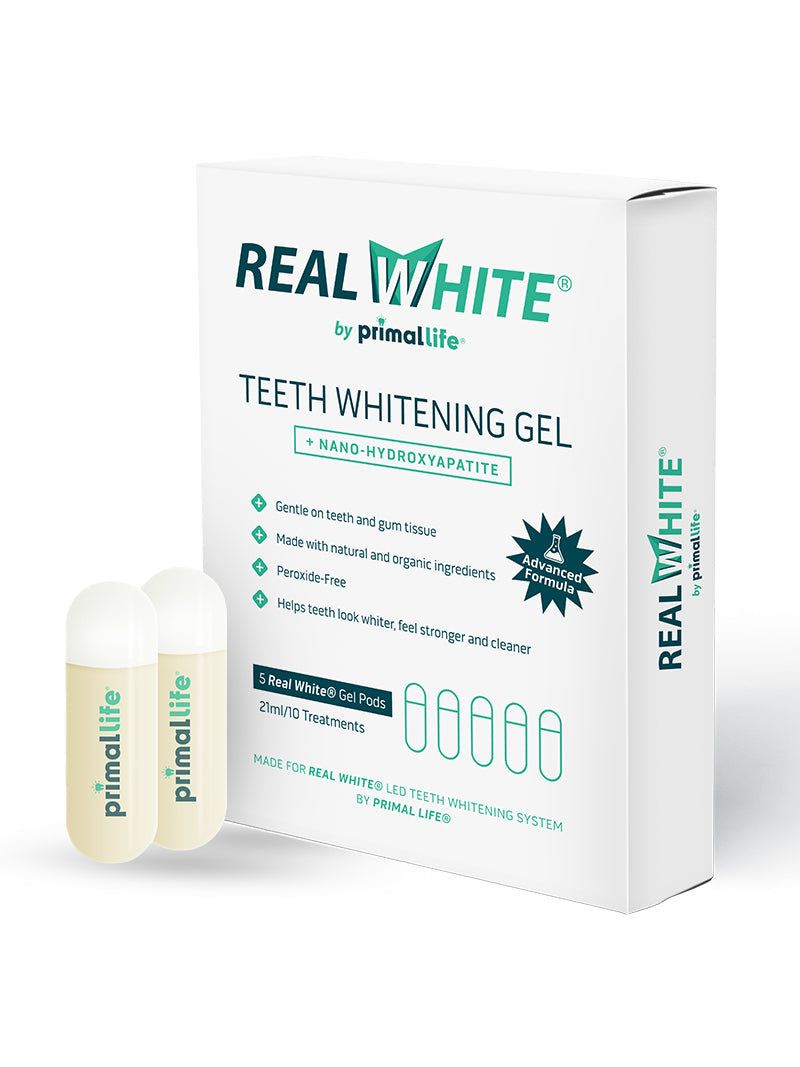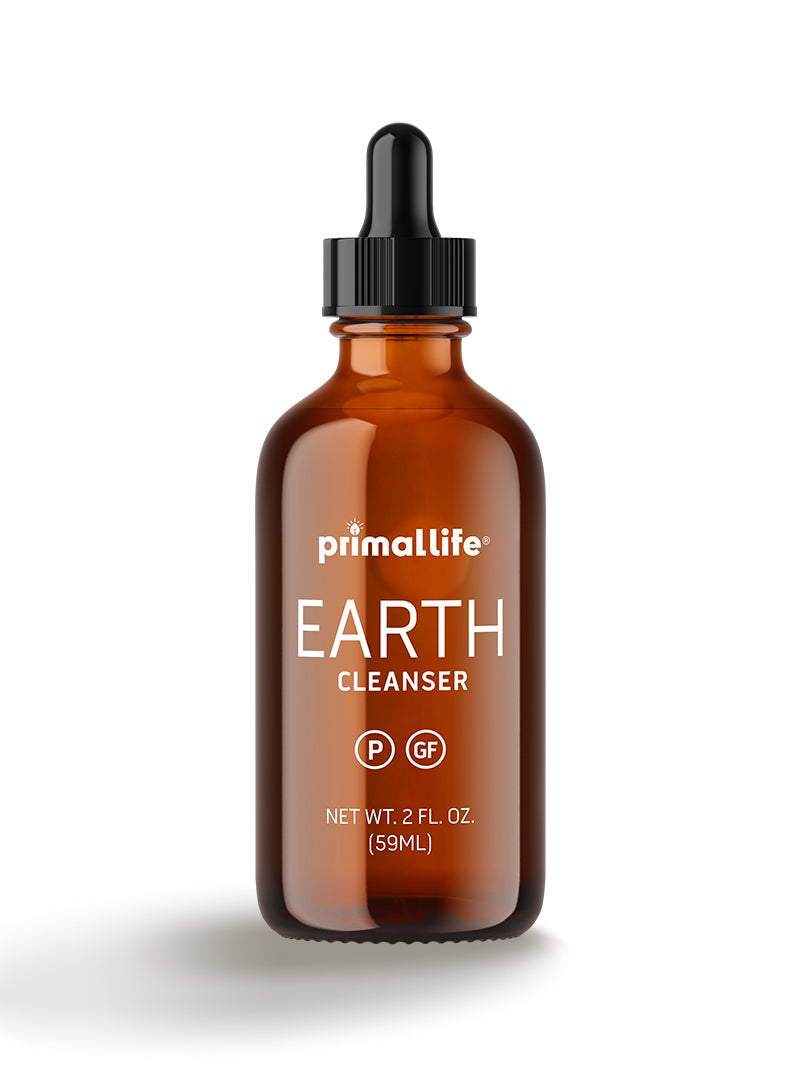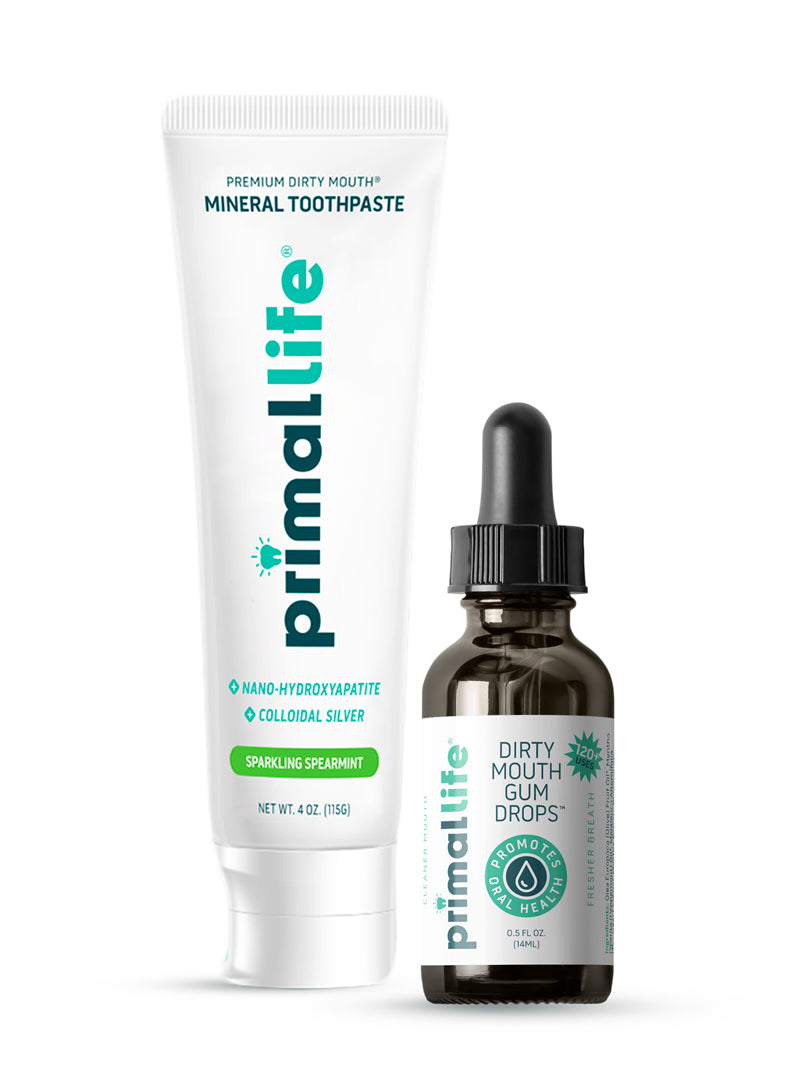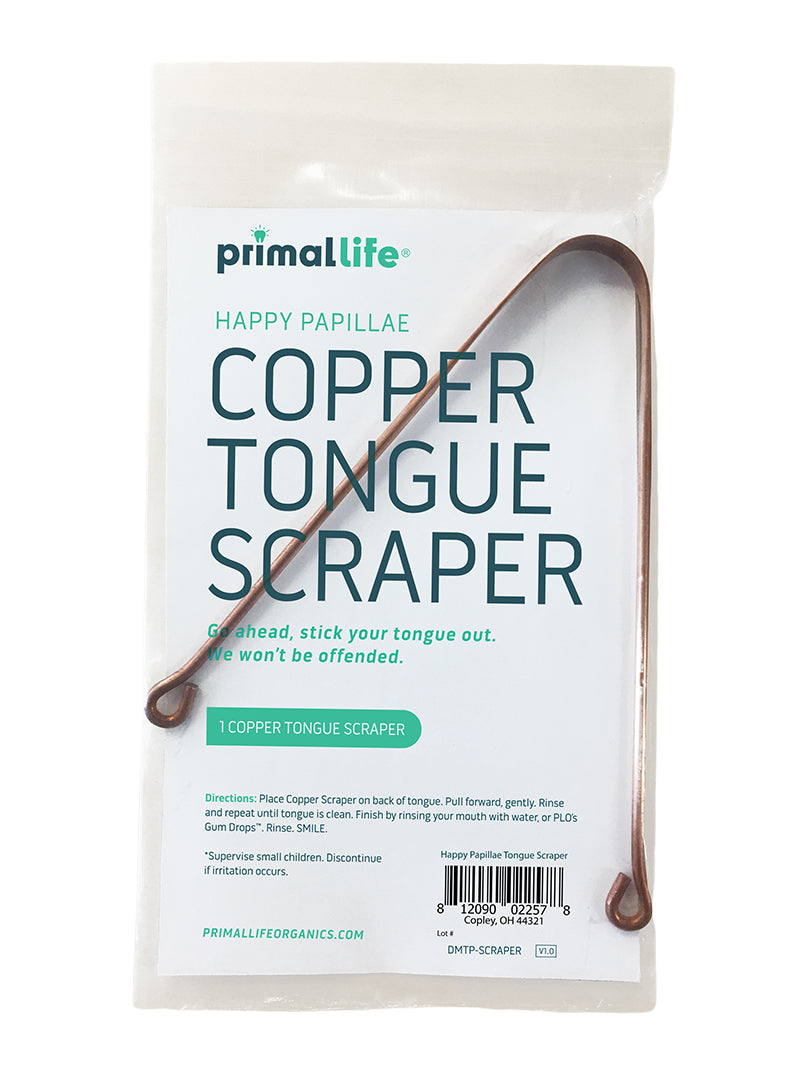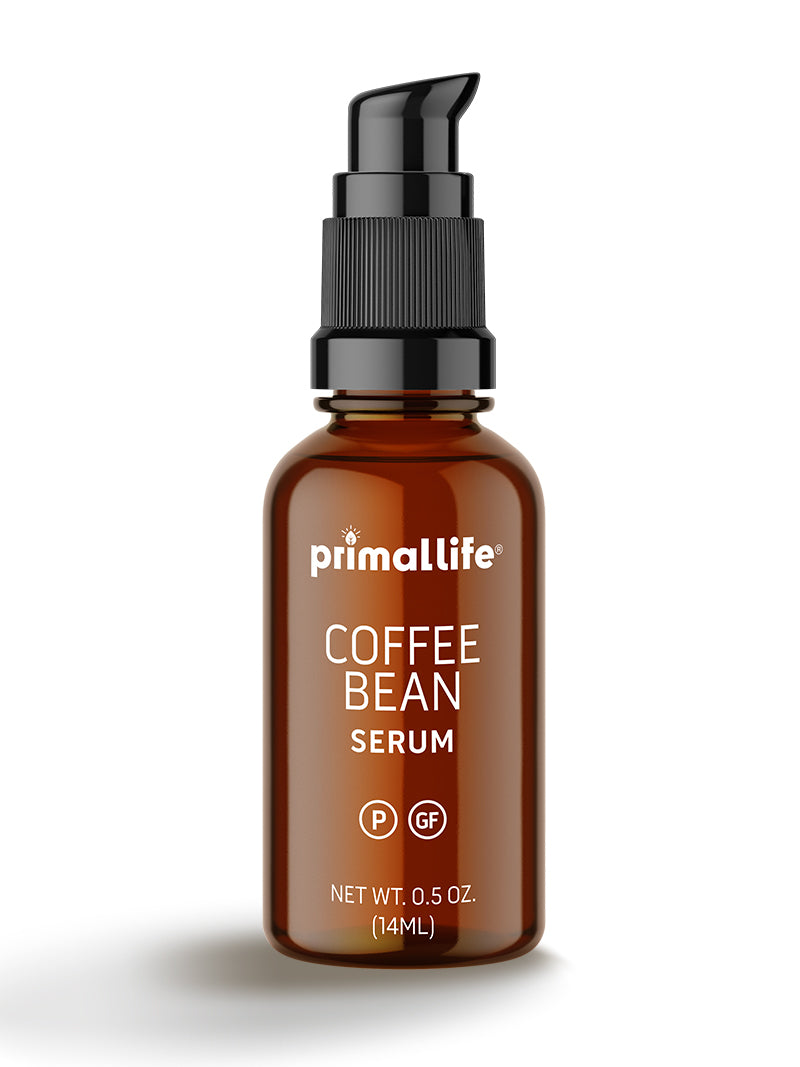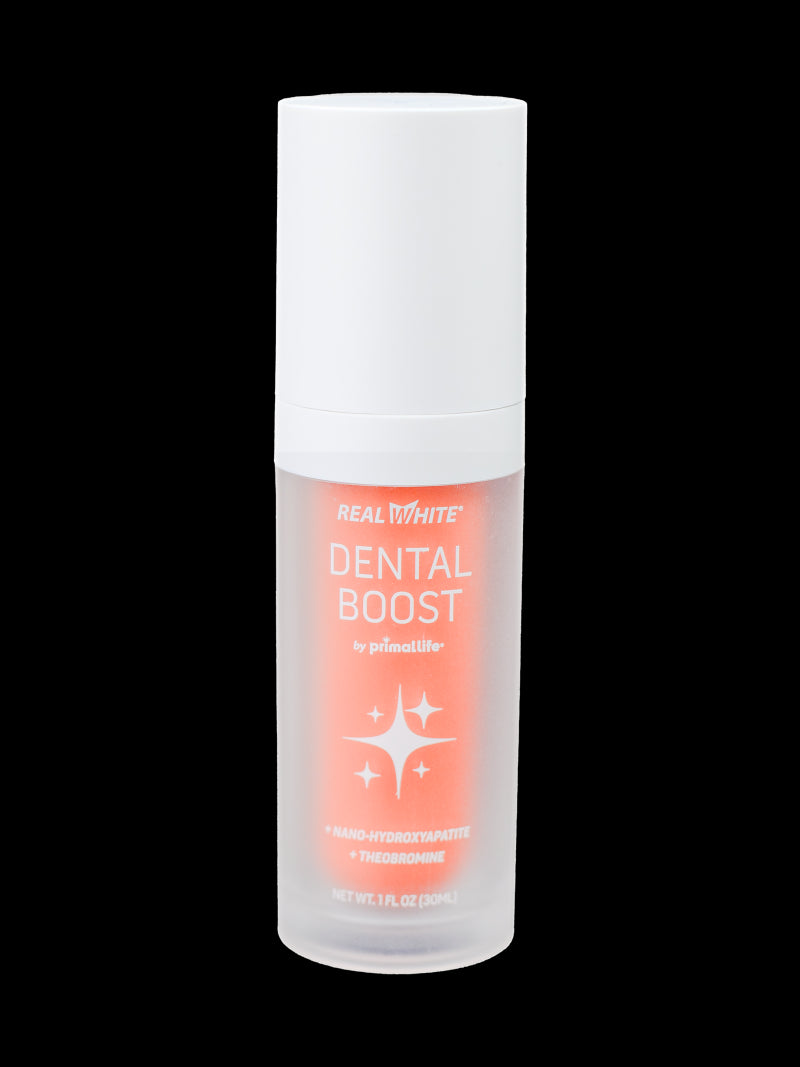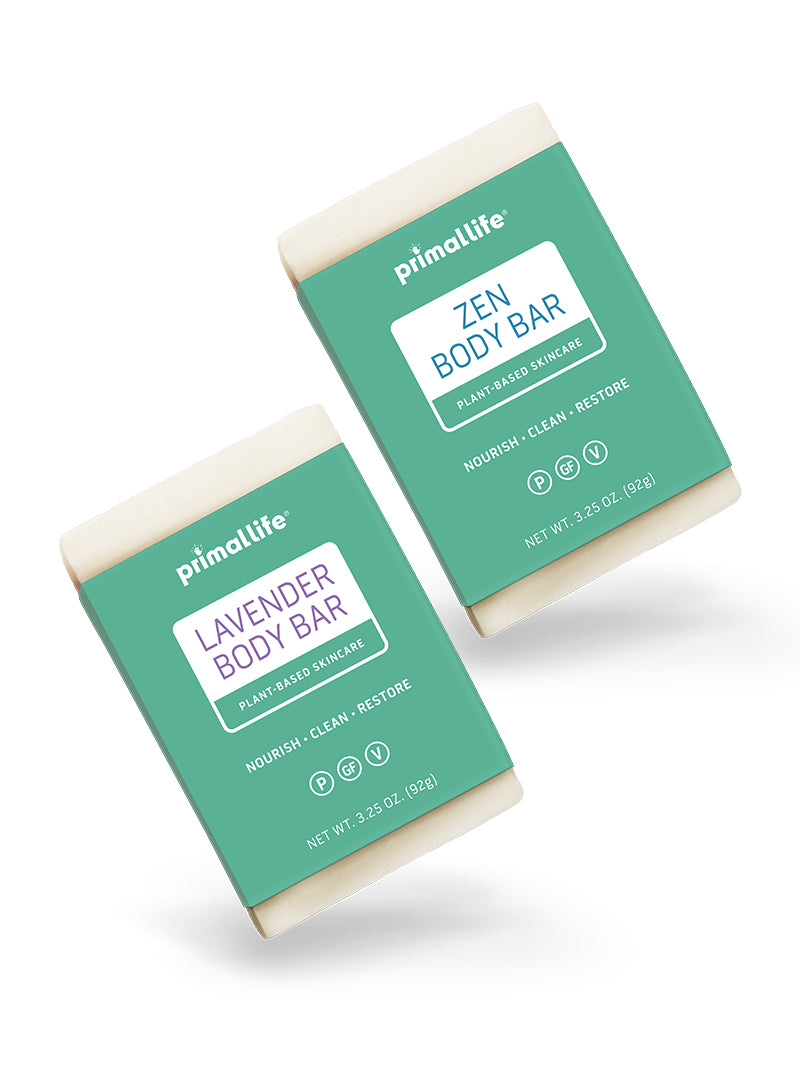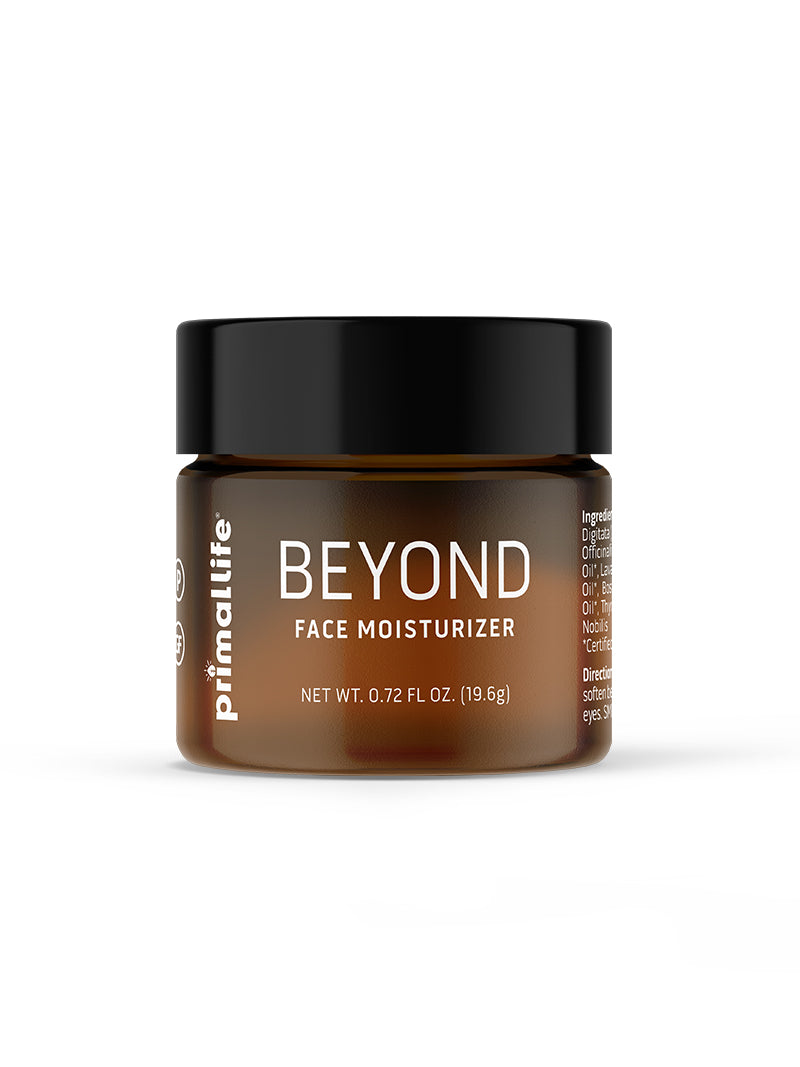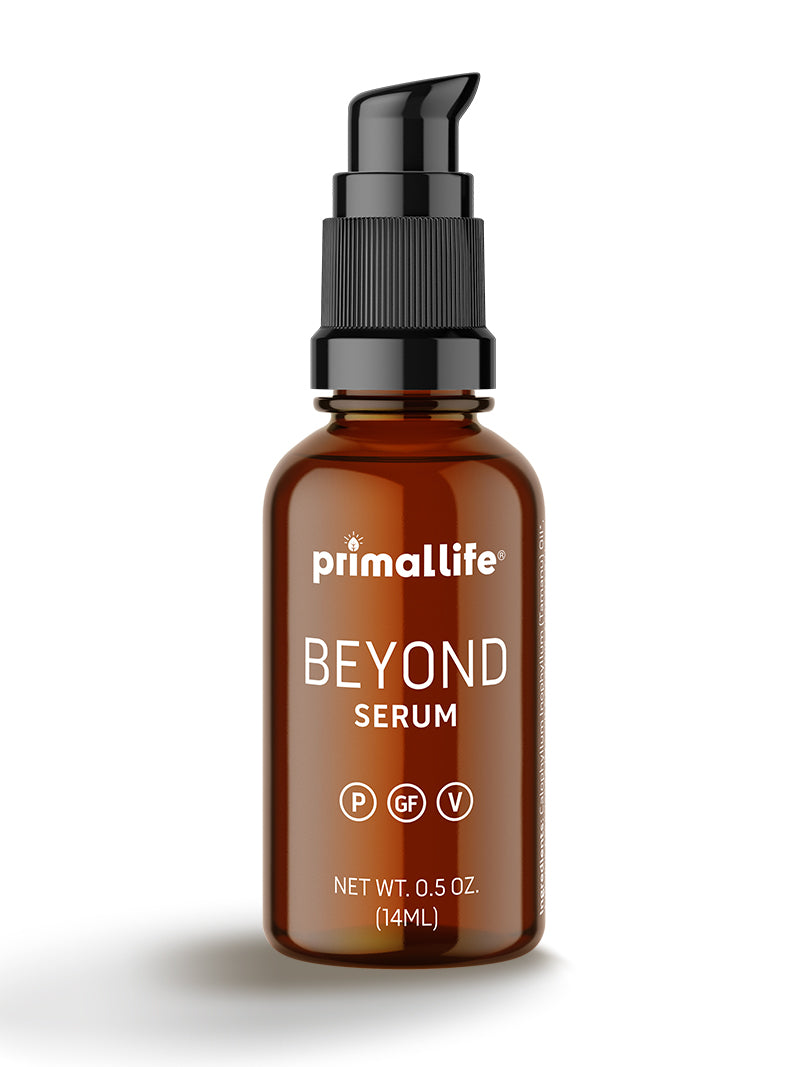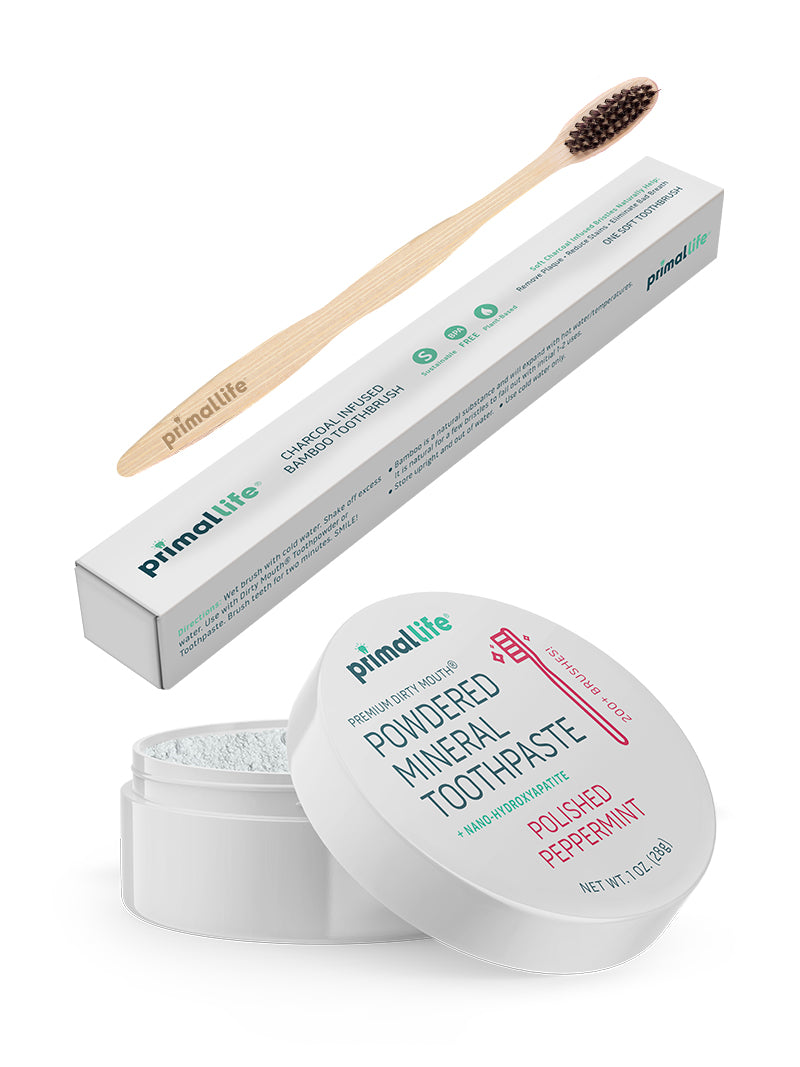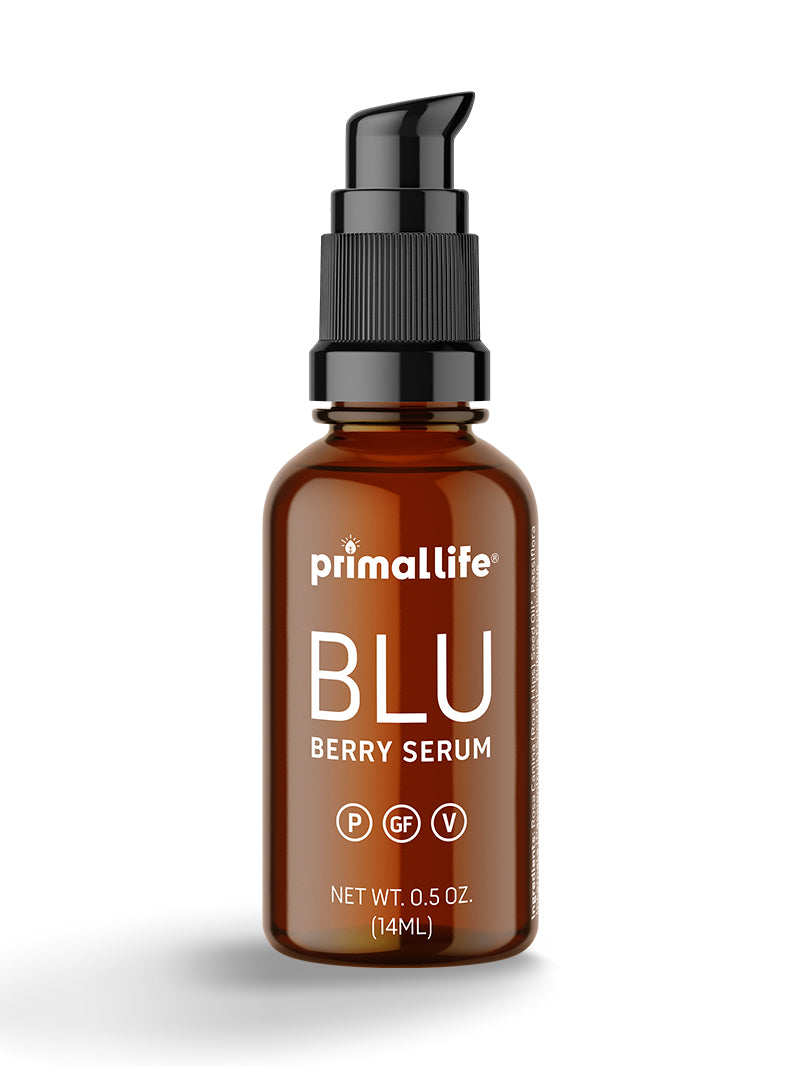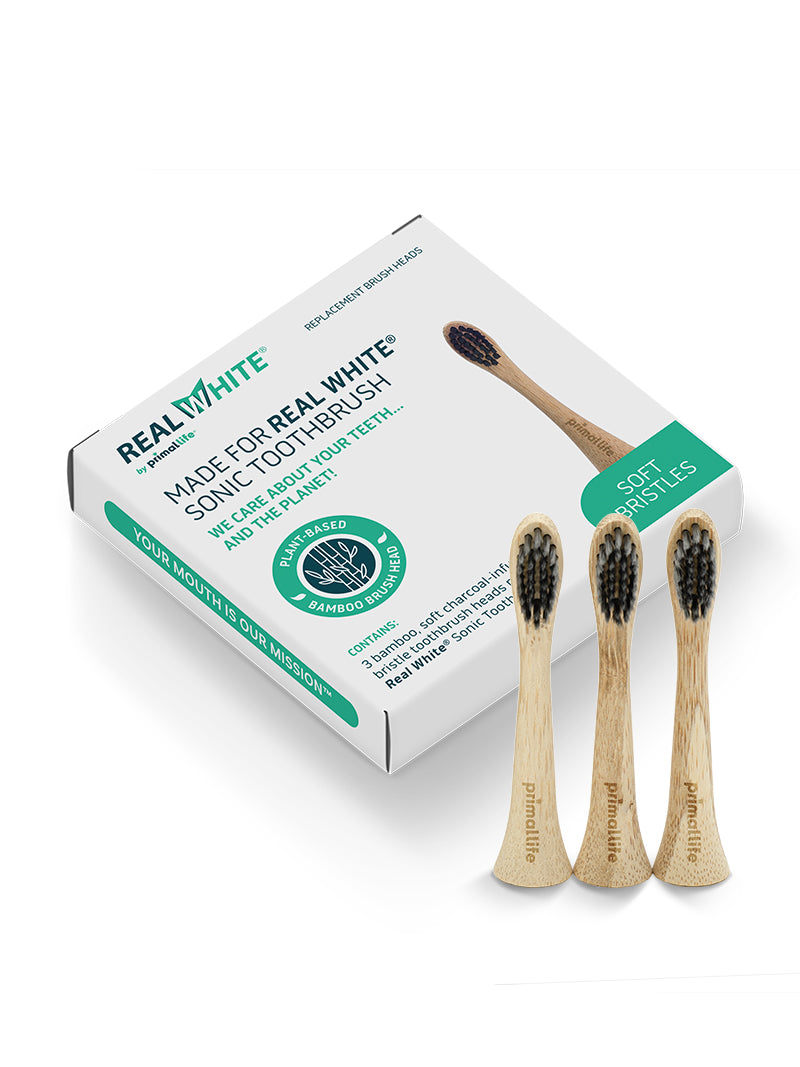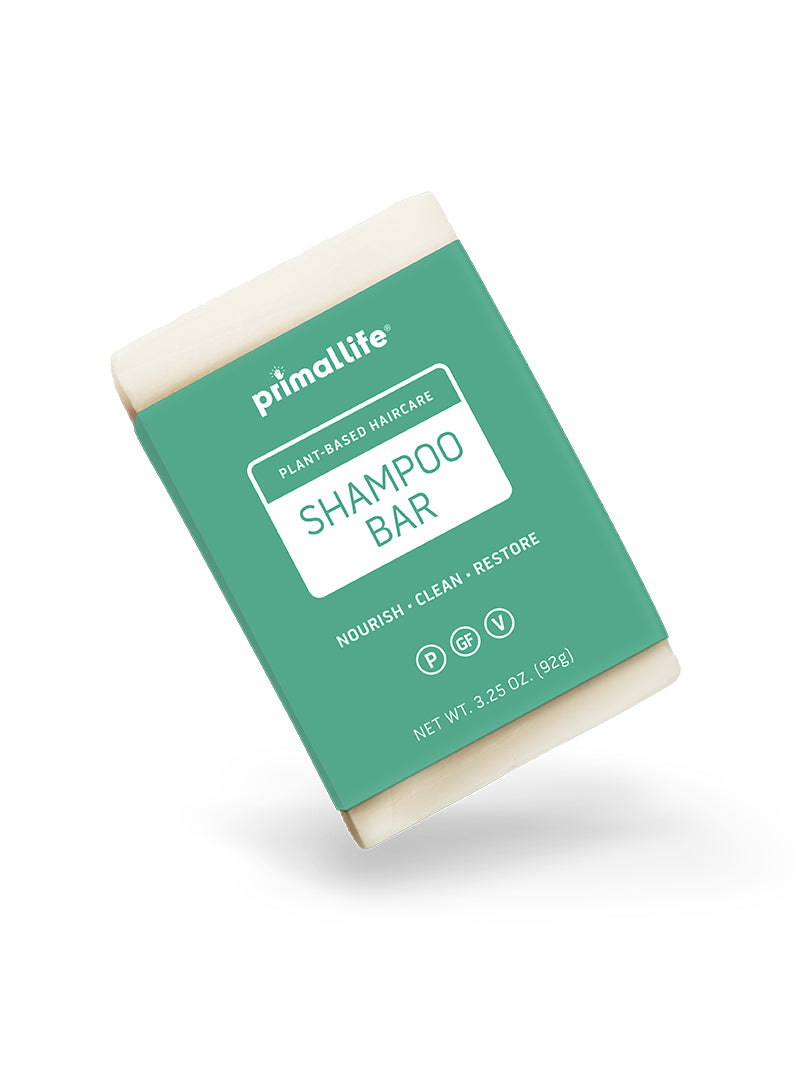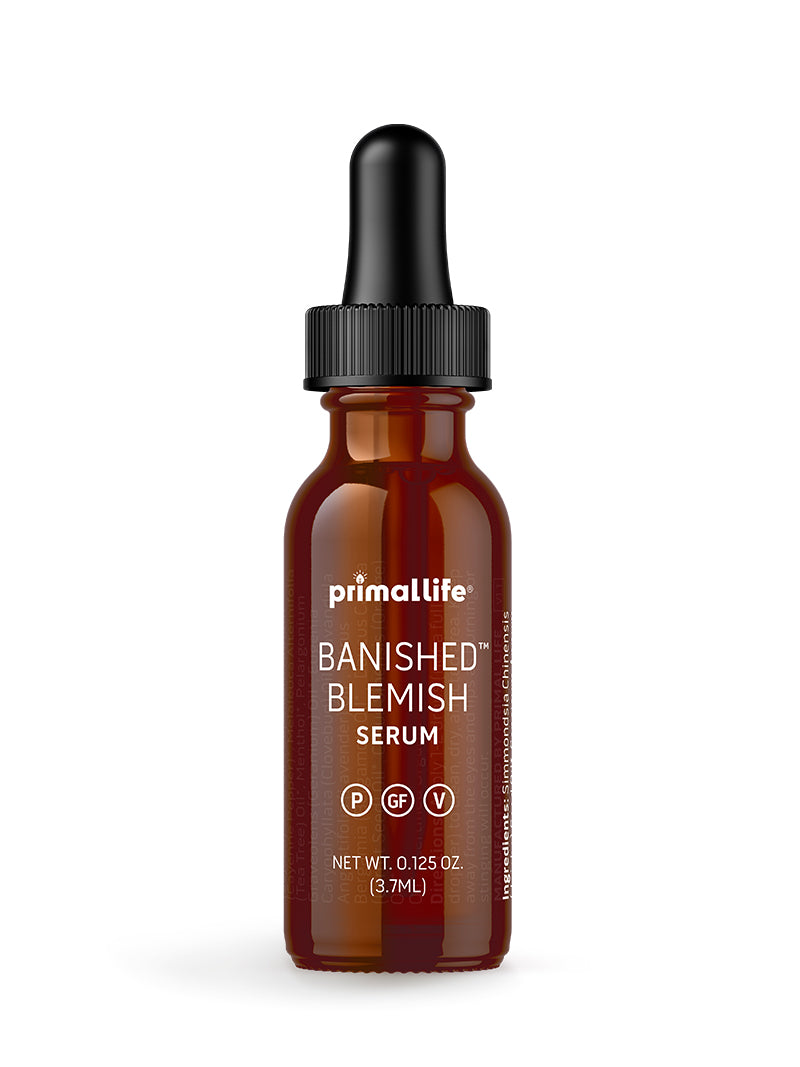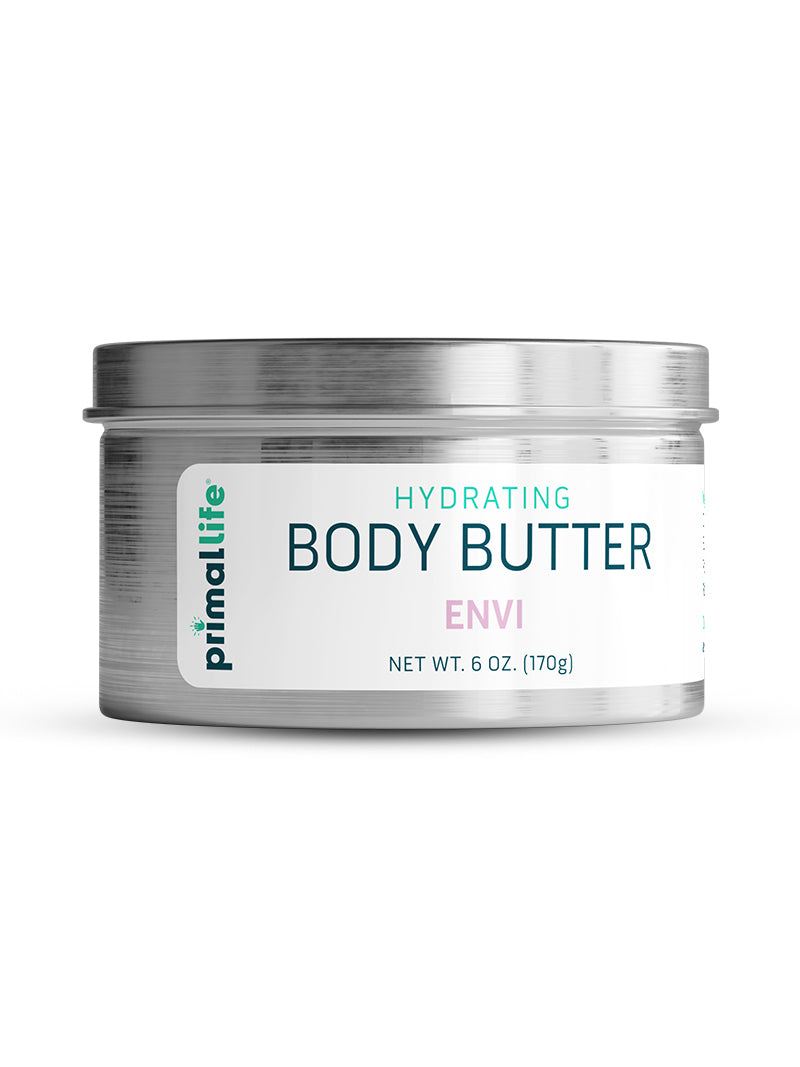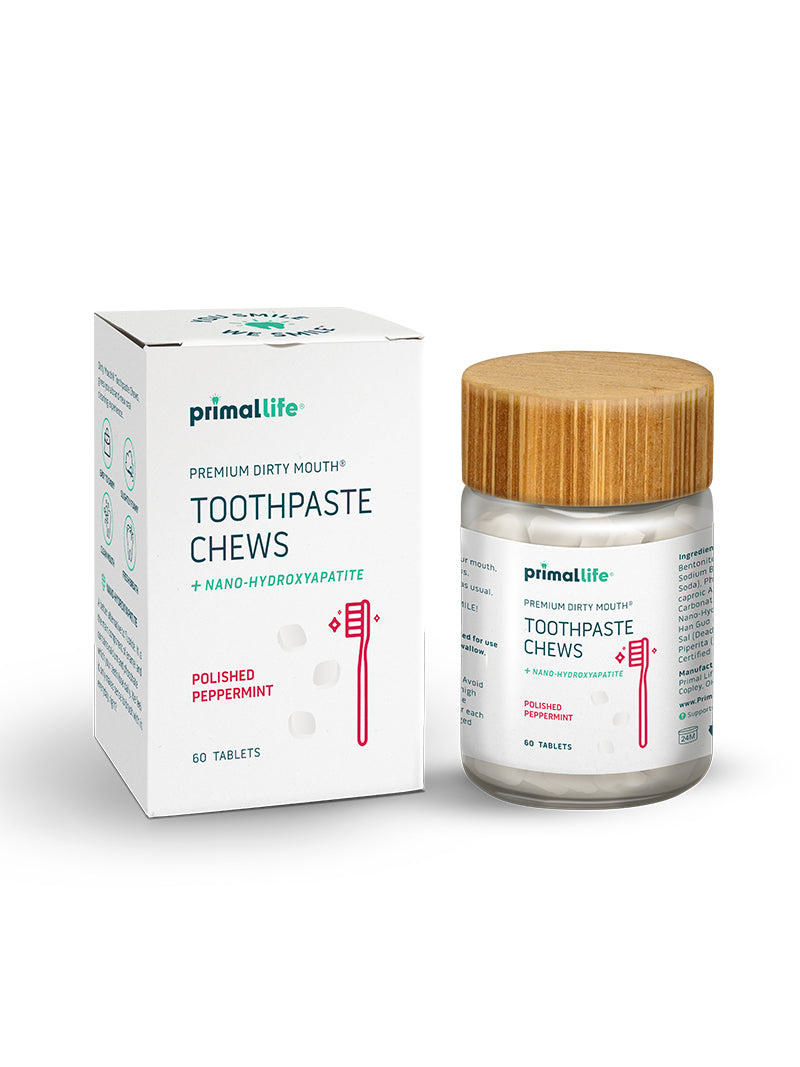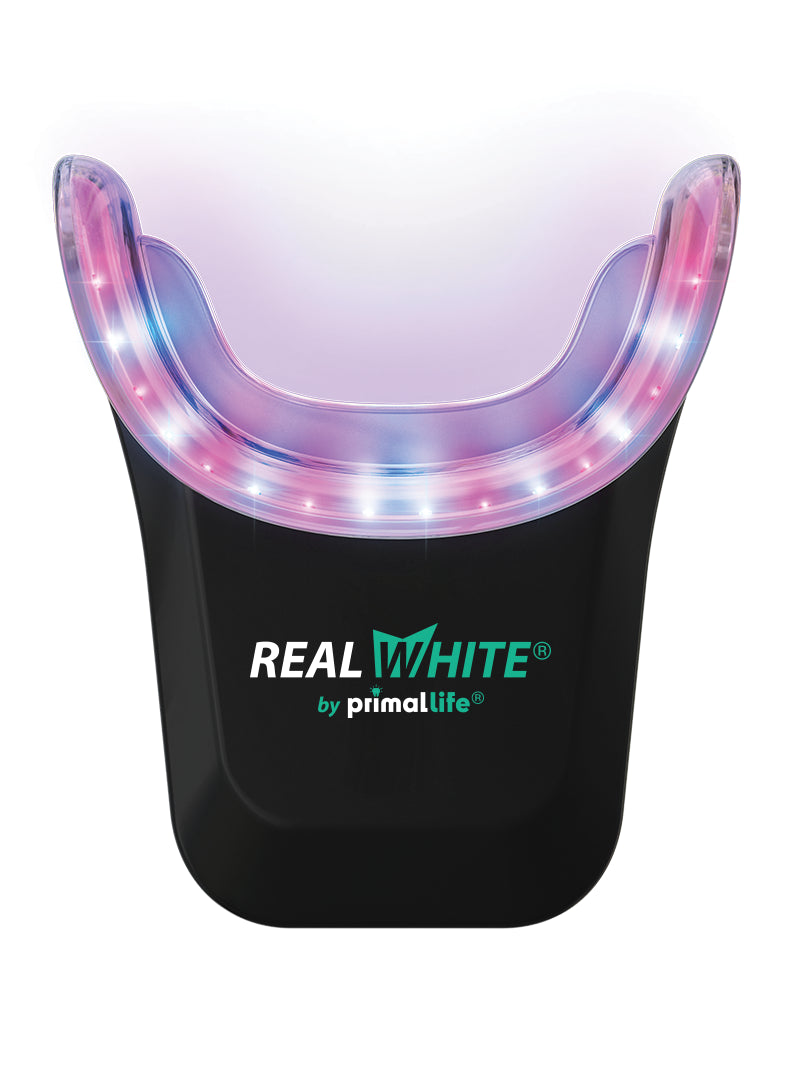The Breast Cancer Survivor's Guide To Personal Care Products
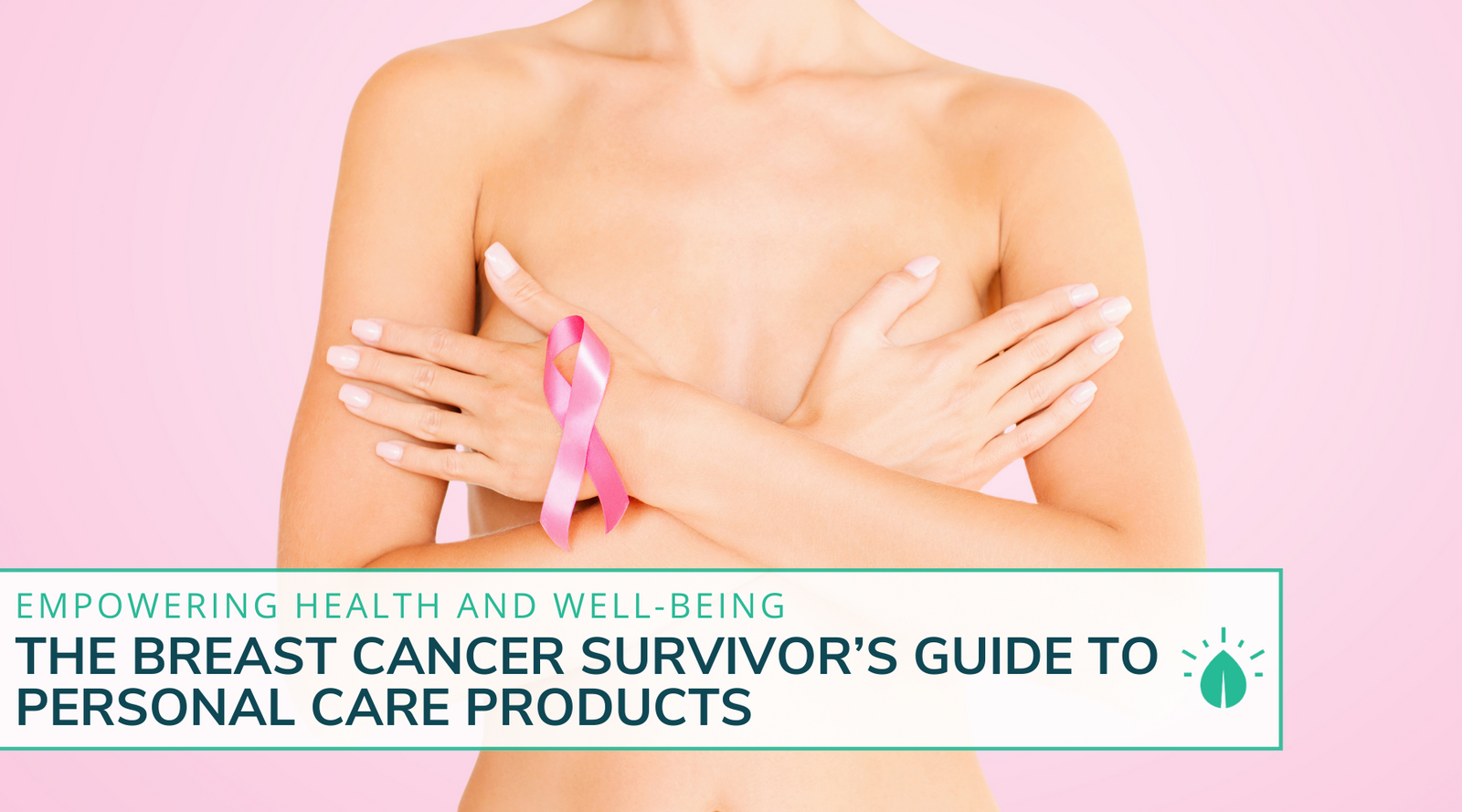
Dear Breast Cancer Survivor...you've faced the unimaginable, battled through the darkest days, and emerged victorious. You're a survivor in every sense of the word.
But as you step into the light of life beyond breast cancer, you're confronted with new challenges, including the daunting task of navigating personal care products in a world fraught with hidden dangers.
The statistics are stark: one in eight women will be diagnosed with invasive breast cancer in their lifetime. It's a staggering reality that has touched the lives of millions, with 2,261,419 new cases of breast cancer each year. And as you well know, the journey doesn't end with treatment. The scars—both seen and unseen—remain, reminders of the trials you've overcome.
Chemotherapy and radiation have taken their toll, leaving your skin thin, fragile, and parched. It's a visible reminder of the battle you've fought, a testament to your strength and resilience. But amidst the victory, there's a new battlefield to navigate—one where the weapons are personal care products, and the stakes couldn't be higher.
In this comprehensive guide, we're here to walk alongside you, offering insights, support, and practical tips to help you reclaim control over your well-being, including selecting personal care products. From understanding the risks posed by harmful chemicals to empowering you to make informed choices, we're committed to equipping you with the knowledge and tools you need to thrive in the aftermath of breast cancer.
So take a deep breath, dear survivor, and know that you're not alone in this journey. Together, let's uncover the path to health, healing, and hope as we navigate the world of personal care products with courage and determination.
Understanding the Risks: Chemicals and Breast Cancer
Given your journey as survivors, it's paramount to understand the risks associated with chemicals in personal care products.
Breast cancer remains a pervasive threat, affecting millions of lives worldwide. As more research is being done, new information is being uncovered that shows links to the chemicals in personal care products and breast cancer.
In a recent study by the Silent Spring Institute published in January 2024, researchers identified 921 chemicals associated with an increased risk of breast cancer. These chemicals were found to be endocrine disruptors, affecting reproduction and the nervous system. What's more concerning is that 92 percent of these substances have the potential to harm or alter DNA, highlighting the significant risks individuals face from daily exposure to these chemicals.
The study took a comprehensive approach, considering various mechanisms through which chemicals could contribute to breast cancer risk. By conducting cell culture studies, researchers identified chemicals that could boost estrogen or progesterone levels, activate the estrogen receptor, or cause DNA damage—all factors that increase the risk of breast cancer.
This research sheds light on the pervasive risks posed by everyday chemicals found in personal care products. With a large portion of the identified substances having the potential to alter DNA and contribute to breast cancer, there's an urgent need for regulatory measures to protect individuals from these hazards.
The Top 6 Chemicals Of Concern
Breast cancer survivors face unique challenges when it comes to personal care products, especially considering recent research revealing the potential links between certain chemicals and breast cancer.
While numerous chemicals have been identified as concerning, we've prioritized the top 6 chemicals due to their widespread presence in everyday products. This targeted approach allows us to provide survivors with actionable insights into the immediate risks associated with commonly used chemicals in personal care items.
1 - Phthalates
Phthalates, omnipresent in cosmetics, personal care products, and household items, often masquerade under the guise of "fragrance." These endocrine disruptors correlate with mammary gland tumors and adverse health effects.
Studies indicate that phthalate exposure may disrupt hormone levels, potentially heightening breast cancer risk.
2 - Parabens
Parabens, commonly used as preservatives in cosmetics and personal care products, play a significant role in extending product shelf life. However, research has raised concerns about their potential health risks, particularly when considering breast cancer or its links to the disease.
These synthetic compounds mimic estrogen in the body, leading to hormone disruption and potential adverse effects on breast tissue. Studies have indicated a correlation between paraben exposure and breast cancer development, highlighting the importance of scrutinizing product labels for these ingredients.
Furthermore, parabens have been detected in breast cancer tissue samples, suggesting a possible link between their use and the proliferation of cancerous cells.
3 - Formaldehyde
Formaldehyde, a known carcinogen, is commonly found in various personal care products, particularly those used for hair straightening treatments, nail enhancements, and as a preservative in cosmetics.
Studies have consistently linked formaldehyde exposure to increased cancer risks, including breast cancer, underscoring the importance of minimizing contact with this harmful chemical.
In addition to its carcinogenic properties, formaldehyde can also irritate the skin, eyes, and respiratory system, exacerbating existing health conditions and compromising overall well-being.
4 - Bisphenols, Including BPA
Bisphenols, such as BPA (bisphenol A), are prevalent in plastics, epoxy resins, and thermal paper, posing a substantial threat as endocrine disruptors. This means if your skincare is housed in a plastic bottle, you could be exposed to BPA.
Despite efforts to phase out BPA, its substitutes may harbor similar health risks, emphasizing the need for vigilant avoidance of bisphenol-containing products. Research suggests that exposure to bisphenols may interfere with hormone function and increase the likelihood of breast cancer development.
5 - Chlorotriazine Herbicides, Such as Atrazine
Chlorotriazine herbicides, including atrazine, are commonplace in agriculture and landscaping and may infiltrate personal care products.
Studies have correlated atrazine exposure with heightened mammary gland tumor risk in animal models, prompting concerns about potential carcinogenicity in humans.
6 - Chemicals Hidden Behind "Fragrance"
The vague term "fragrance" on product labels often conceals a medley of chemicals, many of which pose health risks. The International Fragrance Association lists over 3,000 chemicals frequently incorporated in fragrance formulas, yet escapes FDA regulation due to trade secret protections.
Several of these chemicals have been associated with allergies, respiratory distress, and hormone disruption.
Legal Approval Doesn't Guarantee Safety
The Silent Spring study drives home a critical point: mere regulatory approval does not equate to product safety.
Shockingly, almost none of the 921 identified chemicals underwent safety testing before entering the market. Among these are substances like phthalates, solvents such as trichloroethylene, bisphenols, and chlorotriazine herbicides, highlighting a systemic failure in adequately safeguarding human health.
Disturbingly, the Toxic Substances Control Act (TSCA) exempts chemicals used in pesticides, tobacco, food, food additives, drugs, and cosmetics from regulation. This exemption leaves consumers vulnerable to potentially harmful substances lurking in everyday products.
Comparing regulations between the United States and the European Union further underscores this issue. While the EU has banned or restricted over 1,400 chemicals from personal care products, the US has only limited or prohibited around 30. Such a stark contrast raises serious concerns about the safety of chemicals in American products.
The consequences of lax regulation extend beyond theoretical risks. In the EU, where stricter regulations are enforced, there has been a significant reduction in illnesses and adverse reactions associated with personal care product exposure. Conversely, in the US, reports of health issues, lawsuits, and consumer complaints related to personal care products continue to surface at alarming rates.
These disparities underscore the urgent need for comprehensive regulatory reform in the United States to better protect public health. Without robust safety evaluations and stringent regulations, consumers are left vulnerable to potential harm from untested and hazardous chemicals in their daily products.
Empowering Action: What You Can Do
Your journey with breast cancer has undoubtedly been filled with challenges, resilience, and determination. The last thing you want is to face that battle again, especially knowing that some everyday products may have played a role.
It's understandable to feel angry, frustrated, and concerned about the lack of regulatory oversight and the potential harm these chemicals pose.
Given these challenges, it's crucial to take proactive steps to protect your health and well-being. By understanding product labels, seeking transparent brands, and advocating for stricter regulations, you can empower yourself and others to make informed choices. This proactive approach is crucial in ensuring a future where health takes precedence.
Here are a few steps you can take to prioritize your health and enhance your well-being, empowering you to make informed choices and nurture your skin throughout your journey as a breast cancer survivor:
Caring for Your Fragile, Dry Skin
After undergoing chemotherapy and radiation treatments, your skin may become very thin, sallow-looking, dry, and fragile. To help your skin heal and regain its vitality, it's essential to provide gentle care and nourishment.
Look for skincare products that offer deep hydration and support skin repair. Moisturizers rich in natural oils and plant-based ingredients can replenish lost moisture and strengthen the skin barrier. Additionally, consider using products with soothing and anti-inflammatory properties to alleviate discomfort and promote healing.
Learn How To Read Labels
When it comes to selecting personal care products, especially as a breast cancer survivor, being vigilant about reading product labels is crucial. Avoid products containing chemicals, especially phthalates, parabens, formaldehyde, bisphenols, and undisclosed fragrance chemicals.
Understanding how ingredients are listed on labels is essential as beauty products aren’t regulated by the FDA. The Rule of 5 serves as a helpful guideline: the first five ingredients listed typically make up 75% to 90% of the product. If these ingredients are synthetic or unrecognizable, it's best to steer clear. Instead, opt for products where the first five ingredients are organic essential oils, herbs, extracts, or other plant-based oils.
Moreover, consider the 1% Rule: ingredients below 1% of the total formulation do not need to be listed in any order. Cosmetic companies may strategically place appealing-sounding ingredients higher on the list to distract from potentially harmful ones at the bottom.
By understanding these labeling practices, you can confidently select products that prioritize your health and well-being, promoting a safer and more nurturing skincare routine.
Avoid Water-Based Products:
Most products use standard tap water instead of filtered water. When the water evaporates, it leaves behind high concentrations of toxins and heavy metals on your skin.
Although you may not be able to see the toxins and heavy metals accumulated on your face, you’re sure to notice their side effects like wrinkles, dullness, acne, and discoloration.
Tap water contains endocrine disruptors and a long list of other toxins you would never voluntarily allow on or near your body:
- Disease-causing bacteria
- Heavy metals
- Gasoline solvents
- Synthetic chemicals
- Industrial waste products
- Disinfectant byproducts
Look For Organic Ingredients
Finding products that use plant-based ingredients is a good start, but it's essential to ensure these ingredients come from organic sources. Select products that use ingredients sourced from plants labeled as at least 95% organic or wildcrafted.
Organic farming practices prioritize natural processes and materials over chemicals, aiming to support ecological balance and conserve biodiversity. By opting for products with predominantly organic ingredients, you minimize exposure to harmful toxins associated with non-organic farming, such as chlorotriazine herbicides like atrazine, which is among the top six cancer-causing ingredients in personal care products.
Be wary of labels that only list a few Certified Organic ingredients at the bottom, as this may still expose your skin to a multitude of toxins. Look for products where Certified Organic ingredients are listed prominently, adhering to both the Rule of 5 and The 1% Rule for a safer skincare routine.
Avoiding Products with "Fragrance"
The term "fragrance" on product labels should raise a red flag. Companies are not required to disclose the ingredients used in fragrances, considering them trade secrets. This lack of transparency means you could be unknowingly exposing yourself to a cocktail of harmful chemicals.
The International Fragrance Association (IFRA) oversees fragrance safety but does not restrict known carcinogens, phthalates, or synthetic musks commonly found in fragrances. This poses significant risks to human health, as many fragrance ingredients are also listed as chemicals of concern by reputable organizations.
Many of these chemicals are also listed as chemicals of concern on important publications like California Proposition 65, the European Union Endocrine Disruptors Priority List, and the National Toxicology Program 13th Report on Carcinogens.
Even products labeled as “fragrance-free” may contain fragrance ingredients to mask other chemical odors, underscoring the importance of scrutinizing ingredient labels. While the specific risks of fragrance chemicals vary, reported side effects include respiratory distress, allergies, and hormone disruption.
Opt for Plastic-Free Packaging
Despite the ban on Bisphenol A (BPA) in cosmetic formulations, it is still permitted in packaging materials like plastic bottles and aerosols. BPA, known for its hormone-disrupting properties, can leach into skincare products, posing potential risks to human health, including the likelihood of breast cancer development.
Cosmetic manufacturers and representative bodies argue that the use of Bisphenol A is essential to prevent the degradation of packaging to ensure the quality of the formulation but we disagree.
It has also been stated that compulsory safety assessments on the chemical have found that its inclusion in cosmetics packaging leads only to trace migrations of the substance and do not represent any risk to human health - again, we disagree.
Opt instead for products packaged in cardboard, glass, or tin to minimize exposure to harmful toxins present in plastic packaging. By prioritizing safer packaging materials, you not only safeguard your health but also contribute to environmental sustainability.
Championing Change
As survivors, you understand firsthand the importance of proactive measures in safeguarding health. Advocate passionately for stricter regulations in the personal care product industry, demanding transparency and safety at every turn. Your voice holds immense power in shaping the future of skincare formulations, ensuring they meet the highest standards of safety for both consumers and the environment.
By lending your voice to advocacy efforts, you become a beacon of hope for countless others facing similar battles. Your advocacy can spark vital regulatory reforms, holding companies accountable for the ingredients they use and the risks they pose. Together, we can transform the personal care product landscape into one where safety, transparency, and consumer well-being are paramount.
Stand with us in this fight for safer skincare and forward this article to family and friends. Let your journey inspire meaningful change for generations to come
Empowering Health and Well-being: Essential Products for Breast Cancer Survivors
At Primal Life Organics, our mission is to support the health and well-being of breast cancer survivors by offering personal care products crafted with utmost care and dedication.
We believe in empowering individuals with the knowledge and tools to make informed choices about their self-care routines, ensuring safety and effectiveness are always prioritized.
When it comes to selecting personal care products, we understand the importance of choosing brands that prioritize organic and natural ingredients. Our formulations are crafted using organic and sustainably sourced ingredients, free from harmful toxins and chemicals commonly found in conventional products. By opting for organic ingredients, survivors can rest assured that their skin receives the purest and most nourishing formulations, promoting overall well-being.
In addition to ingredient selection, we also emphasize the significance of packaging choices. Our products are packaged in materials like glass, tin, or cardboard, minimizing exposure to toxins leaching from plastic packaging. This not only safeguards the health of survivors but also contributes to environmental sustainability.
Now, let's delve into some of our top products and why they are essential for prioritizing the well-being of breast cancer survivors:
Stick Up Deodorant

One of the first personal care products to replace when it comes to avoiding breast cancer is your deodorant. Commercial deodorants, laden with toxic chemicals like aluminum, raise concerns about potential health risks, especially for breast cancer survivors who are particularly sensitive to hormonal disruptions and environmental toxins.
At Primal Life Organics, we understand the importance of providing safe alternatives that prioritize your health and well-being. That's why we've crafted Stick Up Deodorant, a game-changing solution designed to keep you fresh without compromising your health. Our aluminum-free formula eliminates odor-causing bacteria and toxins, providing comprehensive odor control while promoting your overall well-being.
By harnessing the detoxifying power of natural clays like bentonite and kaolin, Stick Up Deodorant eliminates unwanted substances from your armpits, ensuring that you stay fresh and confident throughout the day. Zinc oxide further enhances odor control by converting smelly fatty acids into odorless zinc salts, leaving you feeling clean and revitalized.
With our Stick Up Deodorant, breast cancer survivors can say goodbye to toxic chemicals and embrace a healthier alternative that keeps them feeling fresh, confident, and ready to take on the day.
Dental Detox Kit

When it comes to personal care products, you can’t forget to scrutinize your toothpaste. For breast cancer survivors, especially those sensitive to hormonal disruptions and environmental toxins, it's crucial to avoid products laden with harmful chemicals like fluoride and heavy metals, which may pose risks to their health.
At Primal Life Organics, we've developed our Dental Detox Kit as a comprehensive solution to detoxify your mouth and promote oral health. Our kit includes two remineralizing Toothpowders crafted with three different types of clays and nano-hydroxyapatite to cleanse and fortify your teeth and gums, all without compromising your health.
Say goodbye to toxic mouthwash with our Gum Drops, and opt for our bamboo charcoal toothbrush and copper tongue scraper for a complete detox experience. With our Dental Detox Kit, breast cancer survivors can prioritize their oral health without compromising on safety.
Glow Face Package:
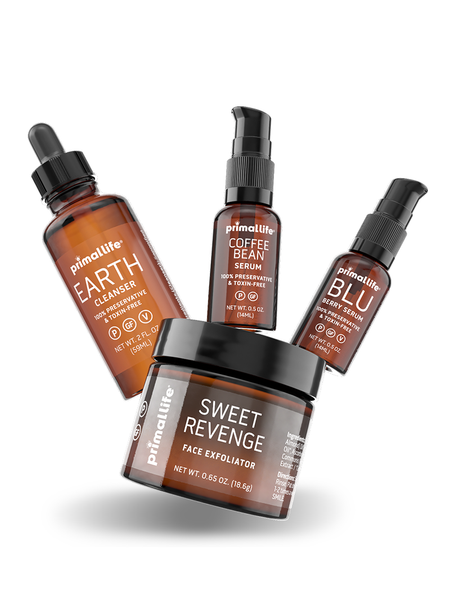
Your skincare routine plays a crucial role in maintaining healthy, radiant skin, especially for breast cancer survivors who may experience skin changes due to treatments. However, many commercial skincare products are loaded with toxic chemicals that can exacerbate skin sensitivities and compromise overall health.
At Primal Life Organics, we understand the unique needs of breast cancer survivors and the importance of clean, natural skincare. Our Glow Face Package offers a simple yet effective solution to transform your skincare routine and revitalize your complexion without exposing you to harmful chemicals.
With our detoxing Earth Cleanser, hydrating Blu Berry and Coffee Bean Serums, and Sweet Revenge Sugar Exfoliator, breast cancer survivors can nourish and rejuvenate their skin, promoting healing and boosting confidence in their journey towards recovery.
Body Wash Bar

Soap is a staple in our daily hygiene routines, but not all soaps are created equal. For breast cancer survivors, it's essential to avoid products containing harmful chemicals like parabens, phthalates, triclosan, and synthetic fragrances, which may pose risks to their health and well-being.
At Primal Life Organics, we raise the bar when it comes to soap. Our Earth-Friendly Body Wash Bar is handmade in the USA, plant-based, super-concentrated, and plastic-free, providing a safe and gentle cleansing experience for breast cancer survivors and their families.
Made with organic oils like saponified palm oil, coconut oil, olive oil, and palm kernel oil, our bars cleanse and remove daily dirt from the skin while leaving it clean, soft, and smooth. With our Body Wash Bar, breast cancer survivors can prioritize their skin health without compromising on safety.
Body Butter

Moisturizer is a skincare essential, especially for breast cancer survivors who may experience dryness and sensitivity due to treatments. However, many commercial moisturizers contain hidden chemicals that can exacerbate skin issues and compromise overall health.
At Primal Life Organics, we prioritize your health and well-being with our Body Butter, a nourishing blend of organic ingredients designed to soothe, heal, moisturize, and repair damaged skin upon contact. Free of harmful additives, phthalates, and synthetic fragrances, our Body Butter provides breast cancer survivors with a safe and gentle solution to hydrate and protect their skin.
Rich in vitamins, antioxidants, and nutrients, our formula helps maintain moisture in the skin, promoting soft, supple, and radiant-looking skin for breast cancer survivors on their journey towards recovery.
Sun Protection
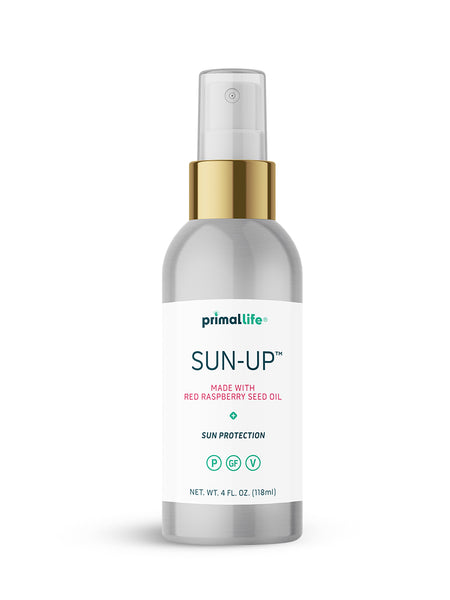
Embracing the joys of summer often means embracing the sun, but for those navigating breast cancer treatment or recovery, protecting delicate skin becomes paramount.
With Primal Life's Sun Up Ultra Skin Protector, you can savor outdoor moments while shielding yourself from harmful rays, especially crucial during chemotherapy or radiation therapy when skin becomes more susceptible to damage.
Our sunscreen, available in a convenient tin or spray, is free from toxins and plastic packaging, opting instead for natural ingredients and eco-friendly containers. Crafted with red raspberry seed oil for robust sun protection and non-nano zinc oxide for broad-spectrum defense, our formula absorbs quickly, feels light on the skin, and won't sting—ideal for sensitive skin.
Whether you're lounging by the pool or embarking on a nature walk, our Sun Up Ultra Skin Protector ensures you can enjoy the sunshine safely, providing peace of mind as you cherish life's outdoor moments.
Shaving Cream

Did you know that many commercial shaving creams contain harmful parabens and phthalates? Your underarms are situated right next to your breasts, and the last thing you want to do is risk exposing them to harmful chemicals found in many commercial shaving creams.
At Primal Life Organics, we believe in a safer, more nourishing approach to shaving, especially for delicate areas like your underarms, which may be extra sensitive after chemotherapy and radiation treatments.
That's why we've created One Leg Up Shaving Cream, a solution free from these toxic chemicals. Crafted with organic shea butter, babassu, lavender, and eucalyptus oils, our formula not only ensures a pain-free shaving experience but also moisturizes and softens your skin with natural, organic ingredients. Say goodbye to irritation and hello to softer, smoother skin with each shave.
Prioritizing Health in the Fight Against Breast Cancer:
Breast cancer survivors face numerous challenges in their journey towards recovery, and the products they use daily play a crucial role in their overall well-being.
By raising awareness, advocating for change, and prioritizing health, survivors can take proactive steps to safeguard their well-being and create a safer, healthier future for themselves and future generations.
At Primal Life Organics, we stand committed to supporting survivors every step of the way, offering clean, natural solutions that prioritize safety, effectiveness, and overall well-being. Together, let's empower survivors to make informed choices and prioritize their health in the fight against breast cancer.
REFERENCES
https://www.cancer.org/cancer/types/breast-cancer/about/how-common-is-breast-cancer.html
https://ehp.niehs.nih.gov/doi/10.1289/EHP13233#sec-5
https://www.webmd.com/breast-cancer/features/breast-cancer-chronic-inflammation
https://www.ncbi.nlm.nih.gov/pmc/articles/PMC5581466/
https://www.ncbi.nlm.nih.gov/pmc/articles/PMC8157593/
https://www.ncbi.nlm.nih.gov/pmc/articles/PMC1570052/
https://www.ncbi.nlm.nih.gov/pmc/articles/PMC5323866/
https://www.ewg.org/news-insights/news/3163-ingredients-hide-behind-word-fragrance
https://www.epa.gov/enforcement/toxic-substances-control-act-tsca-and-federal-facilities
https://toxicfreefuture.org/blog/why-you-should-be-worried-about-toxic-chemicals-in-fragrance/
https://womensvoices.org/fragrance-ingredients/fragrance-chemicals-california-proposition-65/
https://pubmed.ncbi.nlm.nih.gov/11230896/
https://pubmed.ncbi.nlm.nih.gov/31796030/
https://www.lbbc.org/news/8-sun-care-tips-for-people-diagnosed-with-breast-cance
https://www.ncbi.nlm.nih.gov/pmc/articles/PMC8834979/
https://www.cancer.org/cancer/risk-prevention/chemicals/formaldehyde.html


